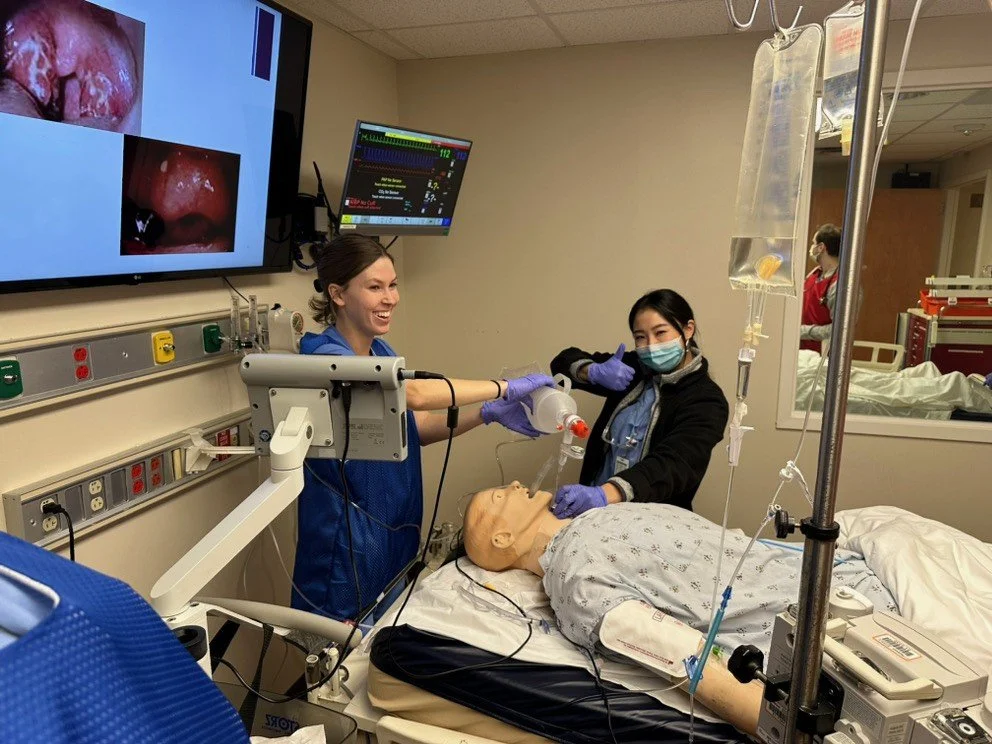How to choose the best ICU fellowship for PAs/NPs
Simulation-based training is a key component of high-quality ICU APP fellowships.
How to Choose the Best ICU Fellowship for PAs and NPs
If you’re a physician assistant (PA) or nurse practitioner (NP) looking to pursue a career in critical care, an ICU fellowship can be a game-changer. These postgraduate programs provide structured training, clinical confidence, and the hands-on experience you need to thrive in the ICU.
But with so many programs emerging, how do you choose the right one?
This guide will help you identify what to look for in an ICU APP fellowship, what questions to ask, and how to find the program that will launch your career.
What Is an ICU APP Fellowship?
An ICU fellowship for PAs and NPs is a formal postgraduate training program that bridges the gap between graduation and independent ICU practice.
Unlike traditional on-the-job learning, these fellowships offer:
Structured ICU rotations (medical, surgical, neuro, cardiac)
Supervised procedures and increasing autonomy
Weekly lectures and simulation-based training
Direct mentorship from ICU attendings and senior APPs
Choosing the right ICU fellowship can define your career as a critical care PA or NP.
Top ICU APP fellowships offer hands-on procedural training from day one.
7 Things to Look For in a Top ICU Fellowship
1. A Program Designed Specifically for APPs
Many critical care fellowships are geared toward MDs, with PAs and NPs expected to tag along. That’s not the same as a dedicated APP fellowship.
Look for programs that prioritize:
APP learning needs
Full ICU scope of practice
Autonomy and preceptorship tailored to NPs and PAs
✅ Bonus: See if the program is accredited.
2. High-Acuity, High-Volume Clinical Rotations
Great programs expose you to a variety of ICUs and emergencies:
Medical ICU
Surgical ICU
Neurocritical care
Rapid response and code teams
✅ Ask: Will I place lines, intubate, or run codes?
3. A Robust Didactic Curriculum
Look for protected educational time. The best programs offer:
Weekly lectures
Simulation labs (e.g., code, airway, ultrasound)
Journal club and EBP discussions
✅ Ask: Is there a regular teaching schedule?
4. Supportive ICU Culture
The best programs offer not just experience—but mentorship and safety to grow. Look for fellowships with:
Preceptors who love teaching
Respect for APPs’ roles and expertise
Encouragement during challenging cases
✅ Ask: Will I have a mentor throughout the program?
✅ Ask: How does the team support professional development?
5. Clear Graduate Outcomes
Where do graduates end up after completing the program? Are they hired as full-time ICU providers?
✅ Ask: Can I speak to a former fellow?
✅ Ask: What kinds of roles do graduates move into?
6. Location, Compensation, and Lifestyle
Your well-being matters too. Consider:
Cost of living
Salary and benefits
Commute and shift structure
Extra shift opportunities
Backup support (especially for those with families)
✅ Ask: Is the schedule sustainable for 12 months?
7. A Fellowship That Believes in You
Choose a program that sees you as more than a cog in the system. Great ICU fellowships transform motivated PAs and NPs into confident, autonomous critical care clinicians.
Is the Piedmont Physicians Pulmonary and Critical Care ICU Fellowship Right for You?
If you're searching for an ICU APP fellowship in Atlanta, the our Fellowship offers:
12 months of structured, high-acuity ICU training
Procedural skills from day one
Weekly didactics and advanced simulation
Mentorship by ICU attendings and senior APPs
A collaborative, fast-paced ICU environment
Full pay and a guaranteed permanent job upon completion of the residency
Final Thoughts
Choosing an ICU fellowship is a big decision. The right program can launch your career, sharpen your skills, and connect you with lifelong mentors. Do your research, ask the right questions, and trust your gut.
Have questions about fellowships or critical care training? Contact us or follow us on Instagram for ICU tips, updates, and real talk from practicing APPs.



